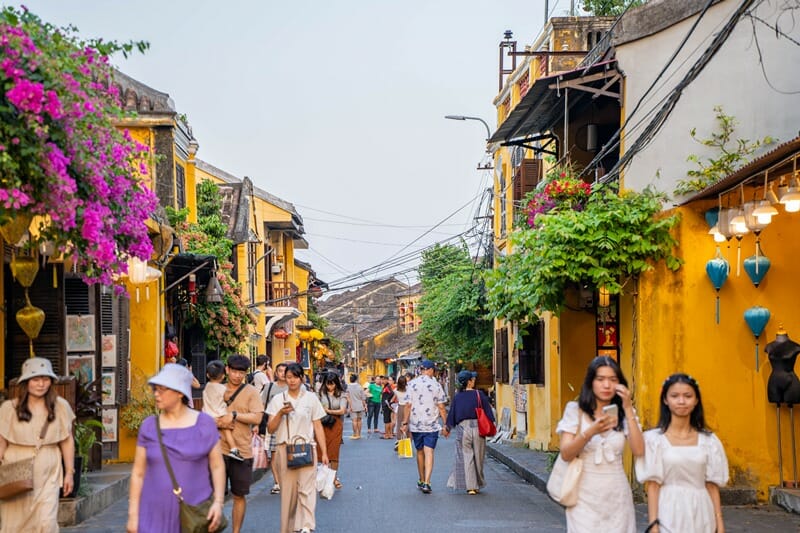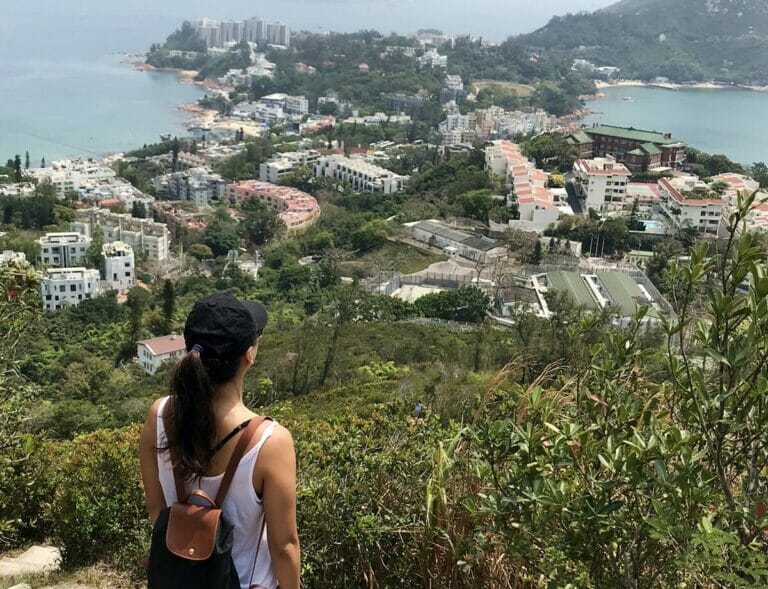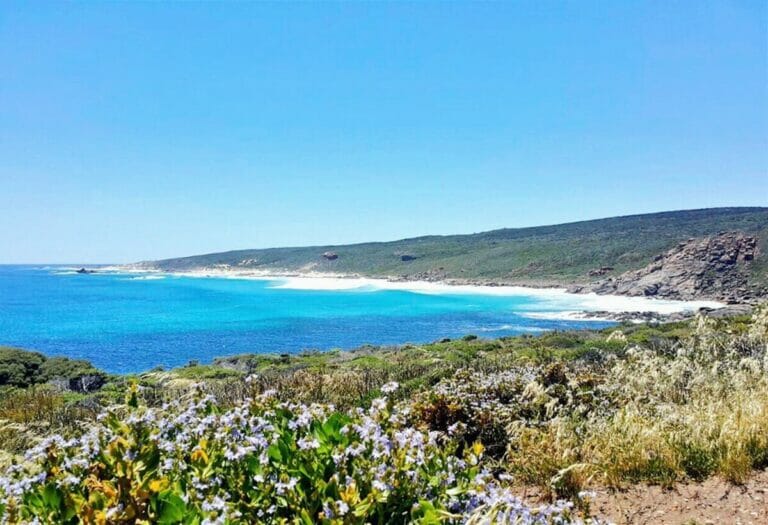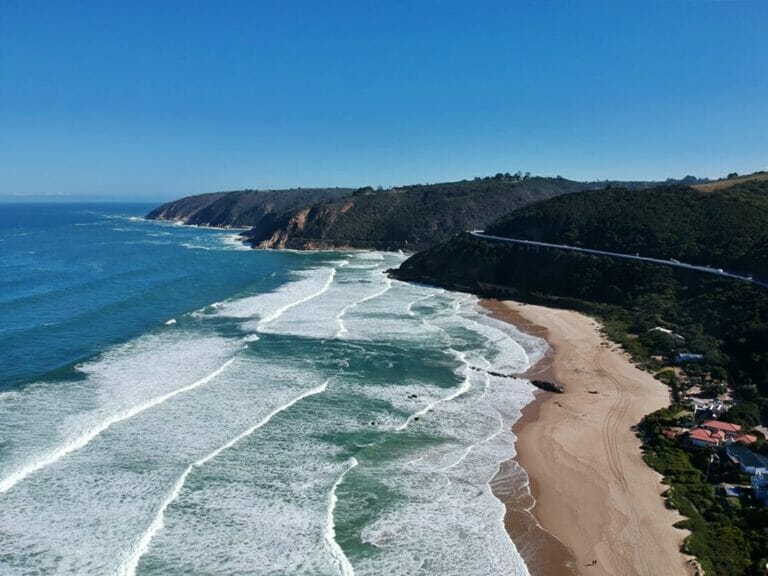Visiting Southeast Asia in 2024? Here’s What You Need to Know
Southeast Asia is home to some of the most diverse and alluring travel destinations in the world. Planning a 2024 Southeast Asia trip? Read this first for insider insight and tips.
The Southeast Asia region is one of my personal favorites and has a special place in my heart – some of my fondest childhood and family memories were created here.

You could spend a lifetime in Southeast Asia and only scratch the surface of what the ten member countries of ASEAN (Association of Southeast Asian Nations) has to offer, from the mouthwatering cuisine to the centuries-old heritage sites and landmarks.

Recently, I had the pleasure of attending the annual ASEAN Tourism Forum (ATF) which was held in Vientiane, Laos this year. You may have read a little about this event when I attended in Halong City, Vietnam, a few years back.

The ASEAN Tourism Forum involves all the tourism industry sectors of the 10 member states of ASEAN: Brunei, Cambodia, Indonesia, Laos, Malaysia, Myanmar, the Philippines, Singapore, Thailand and Vietnam. ASEAN is an inter-governmental organization that aims to foster economic growth, social progress and cultural development in the region.

As a member of media, I was able to attend ATF to hear from the member countries’ tourism organizations on the impact of the pandemic (spoiler: this region was hit heavily), plans for recovery and initiatives for sustainability in the region.

Traveling to Southeast Asia soon? I sat through hours of briefings and spoke to tourism organizations to get the inside scoop – read on for where to go in Southeast Asia in 2024, common themes and key takeaways from the ASEAN Tourism Forum and what you need to know before you travel to the region if you’re planning a trip in 2024 or 2025.
You might also like: 10 Things You Should Know Before Visiting Southeast Asia
1. Recovery, recovery, recovery

Compared to many countries in the West, the majority of Southeast Asian nations were heavily impacted over the past few years. There’s no way to sugar coat it, border shutdowns and restrictions severely decimated the tourism industry in many countries in Southeast Asia.

When tourism contributes, in some cases, nearly 10% to a country’s national GDP and creates more than 40 million jobs in the region directly, this is a huge blow.
According to the World Tourism Organization (UNWTO), international tourism is on the road to recovery and will reach about 90% of pre-pandemic levels by the end of 2023. There are many destinations that have recovered, even exceeding the number of visitors. arrivals and revenues as before the COVID-19 pandemic.
However, the Southeast Asia region is considered to have a slower recovery rate than the world due to being heavily impacted by the pandemic as well as the impact of source markets reopening tourism more slowly.
Source

For example, in 2019 Indonesia received more than 16 million international tourists; in 2021 this figure was just 1.5 million, in 2022 there were 5.4 million international visitors and in 2023 this number was still lagging at just over 10 million.
In Vietnam’s case, international arrivals reached 18 million in 2019; as of 2023 this figure hit 12.6 million. Even Singapore, a major air transportation hub in all of Asia Pacific, was not immune – international visitor arrivals in 2023 were just over 12.4 million between January-November, only about 71% of the same period in 2019.
For Malaysia, there used to be 3,524 international flights each week in 2019; in 2023 there were 2,622 international flights each week and the seat capacity was 526,800 passengers (down from 721,214 in 2019).

It is therefore no surprise that the word on everyone’s lips at the ASEAN Tourism Forum was “recovery”, with almost all of the ten nations hopeful for a rebound in tourism numbers and income in 2024.
Ongoing challenges hamper the recovery in the region’s tourism sector, resulting in a modest 66% recovery in the first half of 2023, following a relatively lackluster 30% recovery in 2022.
ASEANstats.org
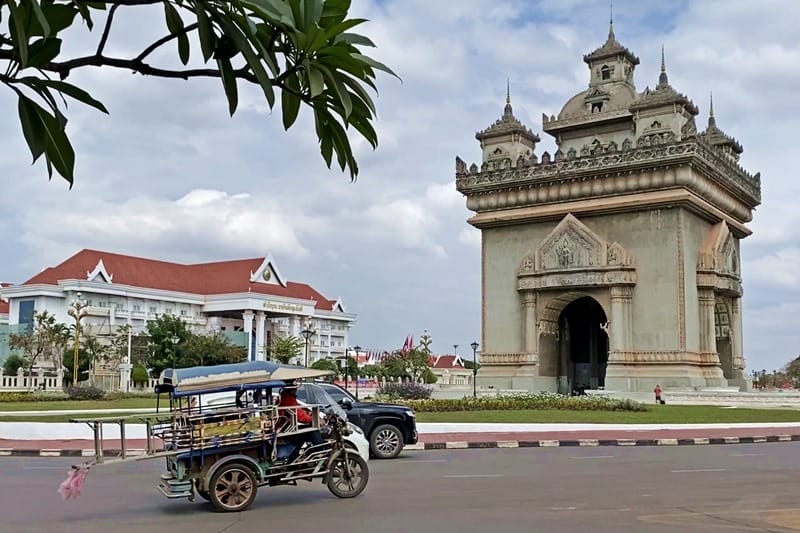
So, what does this mean for you? In a sense, many countries are “starting from zero”. For some countries like Laos, the vast majority of tour guides and those working in hospitality quit the industry completely during Covid. This makes it ever-important to choose experienced guides and companies to ensure high standards and professionalism.

If you are traveling to countries like Thailand, Cambodia or Vietnam I highly recommend booking a tour with one of the experienced local guides via TakeMeTour.
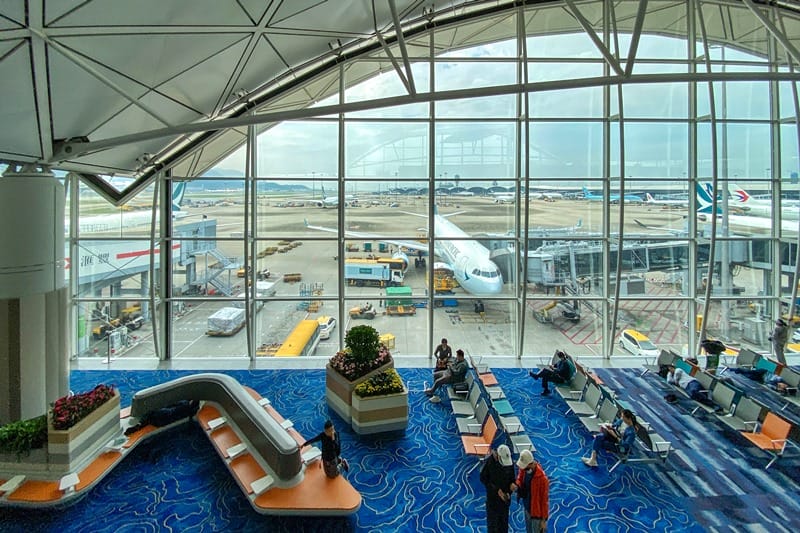
Many international and regional flight routes were put on hold as a result of the pandemic. For example, Luang Prabang lost many direct flights, and from personal experience Cathay Pacific cancelled many Hong Kong to Southeast Asia direct flights.
You may find that, at least in the near term, there are fewer flight options than in 2018 and 2019, and having to transit in major regional flight hubs like Bangkok Suvarnabhumi Airport and Singapore Changi International Airport to get to your destination.
2. The crowds are set to gradually return

All that being said, most of the Southeast Asian nations are projecting huge visitor numbers for 2024, either equaling or even surpassing 2019 figures.

For example, Thailand welcomed over 28 million international arrivals in 2023; it has set a target to welcome 35 million foreign tourists in 2024. Indonesia is similarly targeting 14 million international visitors up from about 10.4 million in 2023.

The Philippines is targeting 7 million international visitors in 2024 up from 5.5 million in 2023, and Cambodia projects 6.6 million international visitors in 2024 which is equivalent to the number of visitors in 2019.
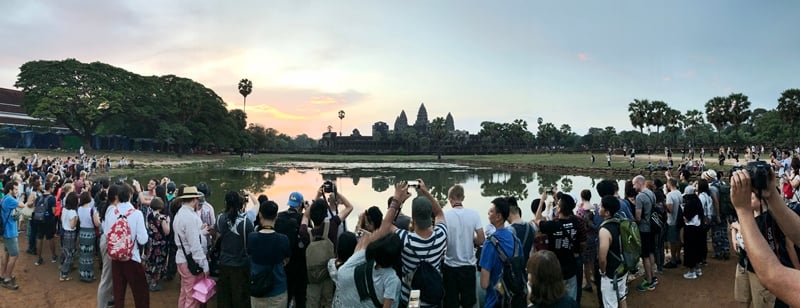
What does this mean for you? Be mentally prepared and expect the crowds to return to the top destinations. If it is not your first time to Southeast Asia and you want to get off the beaten track, it’s time to explore secondary and tertiary destinations like Kanchanaburi and Udon Thani in Thailand; Luang Namtha and Meuang Feuang in Laos; and Flores and Likupang in Indonesia.
3. Heavy emphasis on intra-regional travel

With many Southeast Asian countries heavily relying on domestic tourism to carry their tourism industries through the past few years, there is an increasing trend of intra-ASEAN travel thanks to transportation connectivity and ASEAN visa exemption policies.

For example, 35% of international visitors to Thailand in 2023 were from ASEAN countries, with Malaysia taking a strong lead as the top tourism markets and representing more than 4.5 million international arrivals.

For Myanmar, the top two visitor markets over the past seven years continues to be Thailand and China. Singapore also saw strong demand from key source markets – the top three visitor arrival markets from January-November 2023 were Indonesia, China and Malaysia.
In September 2023, ASEAN even launched a new social media campaign on World Tourism Day to promote intra-ASEAN travel as a key Covid-19 recovery initiative.

What does this mean for you? If you hold a passport from one of the ten ASEAN countries (Brunei, Cambodia, Indonesia, Laos, Malaysia, Myanmar, the Philippines, Singapore, Thailand and Vietnam) you should continue to make the most of the visa exemption policy and travel freely across Southeast Asia.
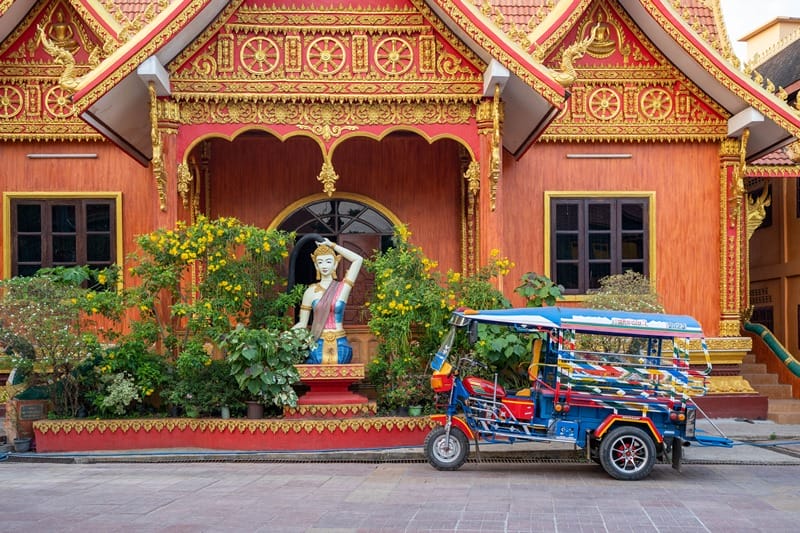
For international visitors, you may want to consider multi-country Southeast Asia itineraries to take advantage of the connectivity and easy travel within this region.
4. Potential visa and border policy changes
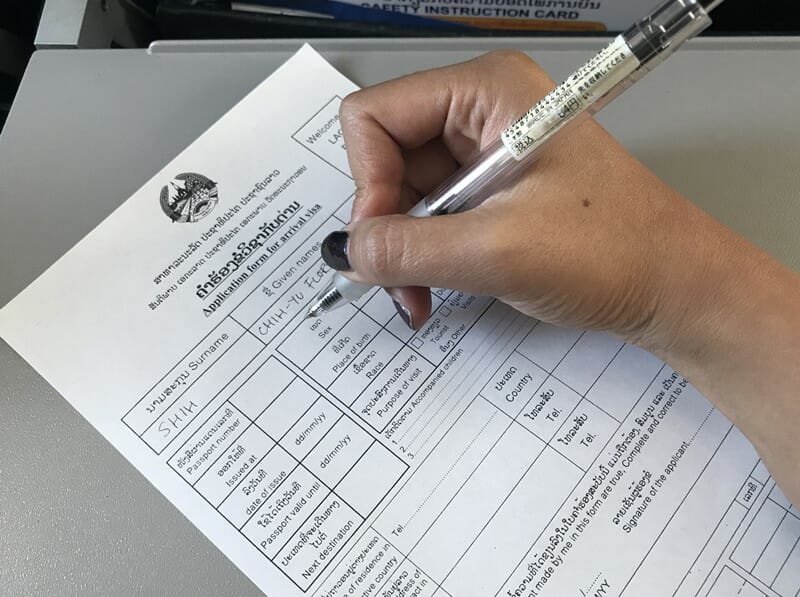
There seems to have been a flurry of new policies and updates over the past year from most Southeast Asian countries. Here are a few that you need to know about:
Indonesia: As of February 14th 2024 you will also be required to pay a 150,000 IDR (approximately US$10) “tourism levy” to be used towards the conservation of Bali’s nature and support sustainable tourism – this fee is in addition to the visa-on-arrival fee. You should arrange to pay this fee online before your trip, though certain exemptions apply (diplomatic visa, Golden visa and student visa etc.) and must be applied for 1 month in advance.
There are also some rumblings about Indonesia bringing back visa waivers for 20 countries but nothing has been definitively announced as of March 2024.
Malaysia: From January 1st 2024, Malaysia is implementing a “Digital Arrival Card” for all foreign citizens (excluding Singaporean citizens). It will be mandatory to complete the MDAC within three days of arrival in Malaysia.
Myanmar: Passport holders from the following countries are eligible to apply for a Tourist Visa on Arrival: China, India, Italy, Spain, Australia, Switzerland, Germany and Russia.
Thailand: The Thai government is considering a proposal to let tourists from some countries stay for 90 days without a visa. On March 1st 2024, it also recently expanded visa-free access for tourists from China for up to 30 days.

Vietnam: Starting from mid-August 2023, Vietnam has extended the validity of the tourist e-visa up to 90 days, and also extended the visa exemption period to 45 days.
* These may change without warning, please double check on the country’s official tourism or consulate website ahead of your travels!
5. Wellness travel will only continue to grow

Wellness is on everybody’s minds, especially post-pandemic. Several Southeast Asian countries’ tourism organizations highlighted their wellness destination offerings (some for the first time) and pointed this sector out as a growing market.
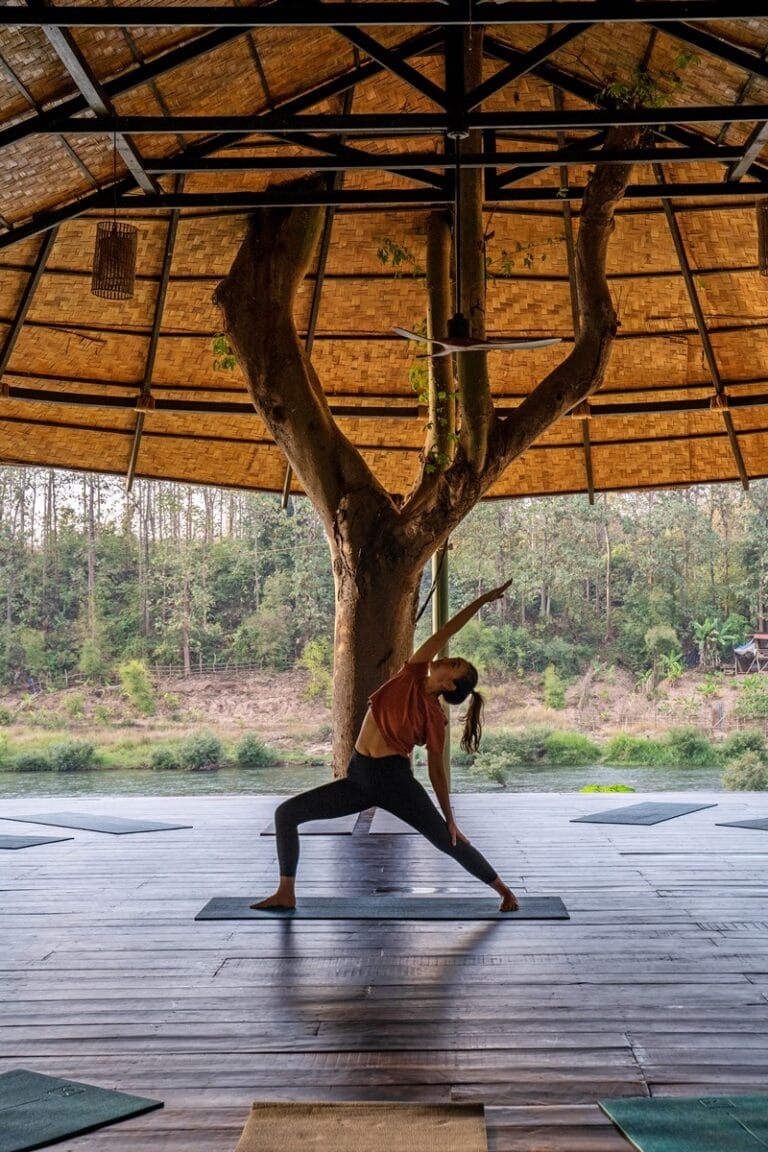
What does this mean for you? In 2024, it might be time to look beyond the obvious wellness and Yoga destinations in Southeast Asia – consider properties like TIA Wellness or Avana Retreat in Vietnam; The Namkhan in Laos; the brand new NAWA wellness in the Philippines; Navutu Dreams in Cambodia or even experience “urban wellness” at the annual month-long Wellness Festival in Singapore.
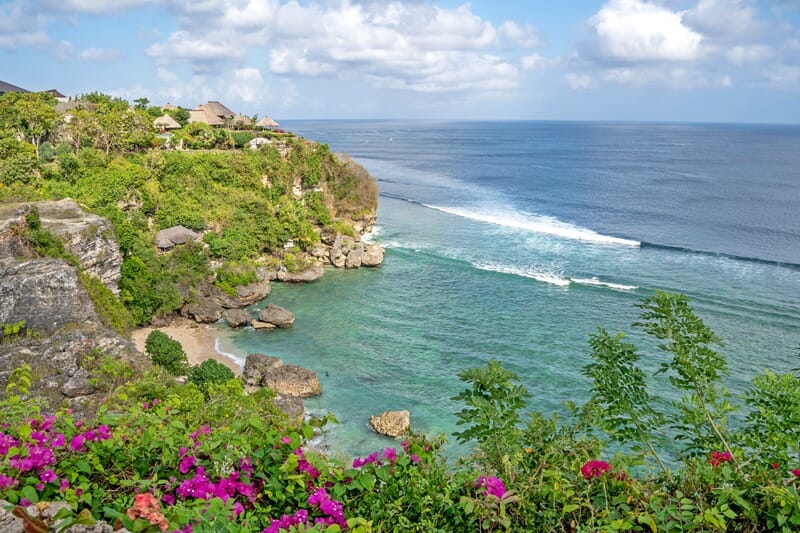
Even within prominent wellness destinations like Bali, you can branch out from the “usual” Ubud wellness hub and check out The Asa Maia or ultra luxe Istana, both of which are in Uluwatu.
6. Festivals galore
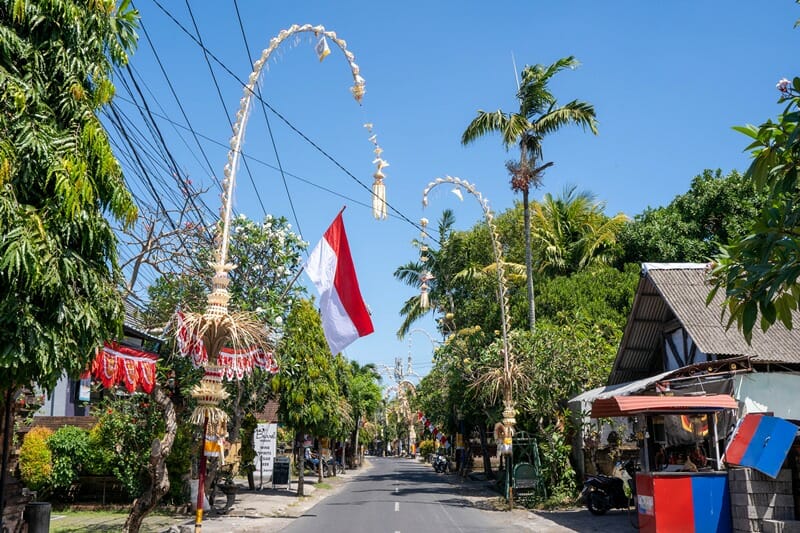
Southeast Asian culture is incredibly diverse across regions and countries, and the ASEAN nations are more than ready to showcase all of their vibrant festivals on the world stage.

What does this mean for you? If you are traveling to Southeast Asia in 2024, it’s time to plan your visit around festivals and local events to experience the local culture!

Consider checking out the Boat Racing Festival in Luang Prabang, celebrate Pongal in Singapore, enjoy the excitement of Songkran in Thailand, or even experience the peace and quiet of Nyepi in Bali. You can find Southeast Asia event calendars on most government tourism organization websites.
7. Improved connectivity and new infrastructure
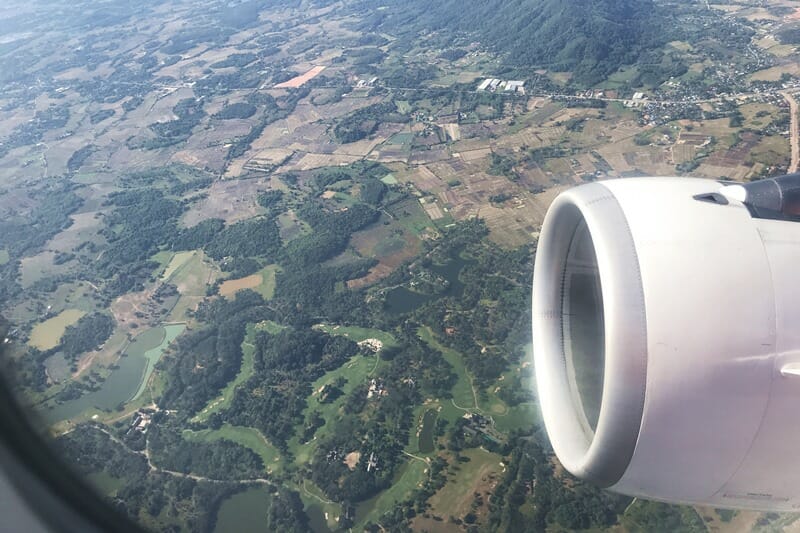
There have been some significant developments and updates over the past few years when it comes to infrastructure in Southeast Asia. What this means for you as a traveler is that you can consider taking new routes with shorter travel times, get to new destinations more easily and even hop across Southeast Asia more conveniently.
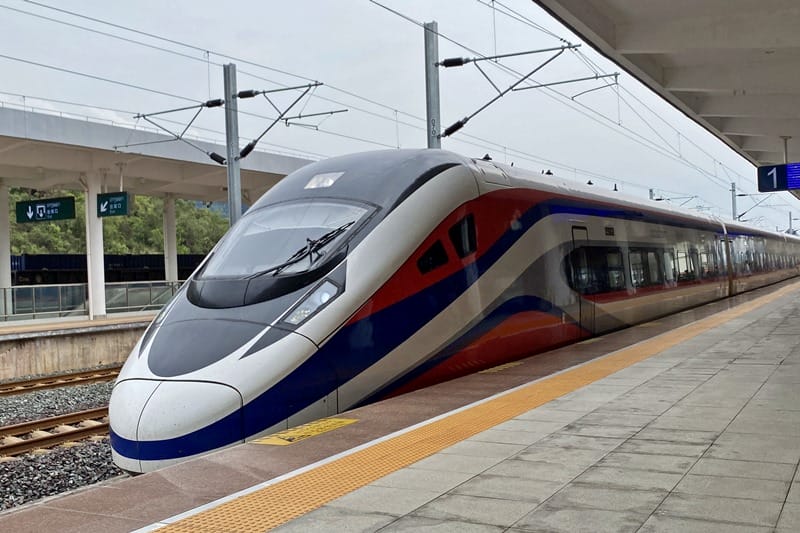
Though the new high speed rail in Laos was officially launched in 2021, the country only officially reopened to international visitors in mid-2022. I recently hopped aboard between Vientiane and Vang Vieng, and again from Vang Vieng to Luang Prabang, and loved how clean, fast and efficient the high speed train was.

A sometimes 6-8 hour journey between Vang Vieng and Luang Prabang had been cut down to just over 1 hour in a comfortable seat – gone are the days of nauseating journeys on “VIP” buses and minibuses where passengers are packed in like sardines!
For those who prefer to stick to the road, there is also a new expressway for cars between Vientiane and Vang Vieng, connecting the two destinations in just over an hour.

Lao Airlines is also set to commence thrice-weekly flights between Vientiane and Phnom Penh on March 19th 2024, making it easier to travel between Laos and Cambodia. The flight will take just under 90 minutes – this significantly cuts down the travel time for a trip that used to take upwards of 24 hours.

In Cambodia, the Siem Reap-Angkor International Airport officially opened at the end of 2023, accommodating larger commercial planes – the government hopes that this will open up new global long-haul routes and provide a flow of tourism from Europe and the United States. A new airport in Phnom Penh is also slated to open in 2025, and Sihanoukville Airport is due to receive a new terminal in 2026. Daily flights to Phnom Penh, Siem Reap, and Sihanoukville will also be offered by AirAsia Cambodia when it launches in May 2024.
Thailand has also been keeping busy, adding a satellite terminal to their flagship Suvarnabhumi Airport in Bangkok to increase capacity, and Chiang Mai International Airport is now operational 24 hours a day and can potentially accommodate up to 30% more flights and passengers.

In Vietnam, the stunning luxury train traveling daily between Da Nang and Quy Nhon, The Vietage by Anantara, will be introducing a new second railway carriage between Nha Trang and Quy Nhon on May 15th 2024.
8. Countries are showcasing particular destinations in 2024
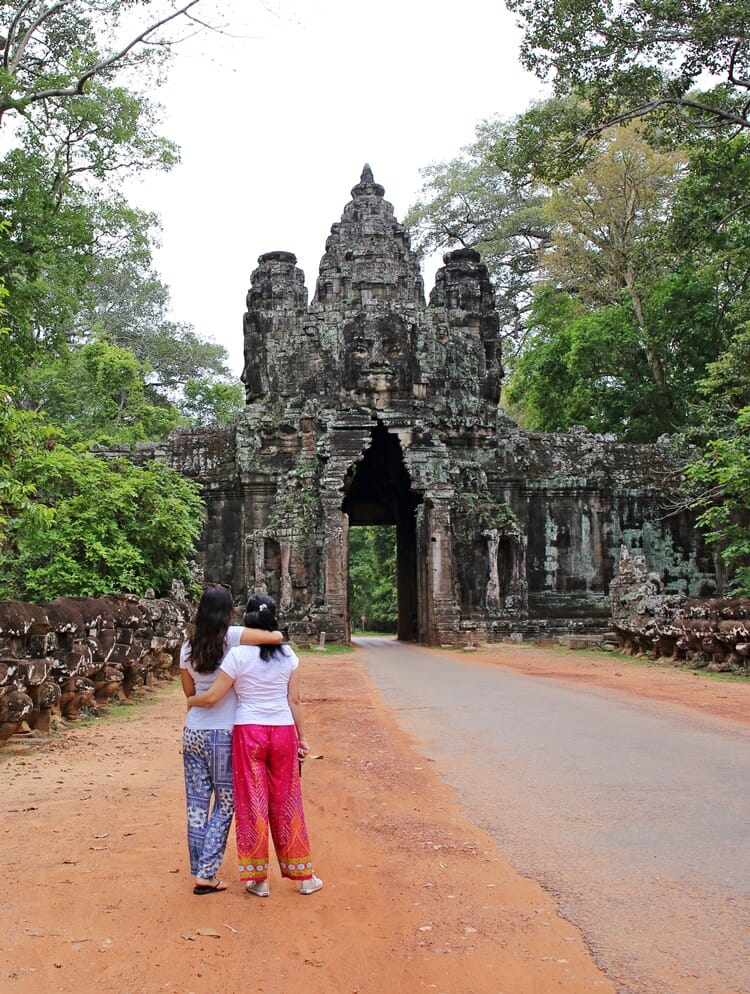
Tourism organizations in Southeast Asia have a lot on their plate – each country offers up a huge portfolio of destinations, which is why many countries are choosing to showcase select regions in the spotlight and distribute the visitor load more evenly.
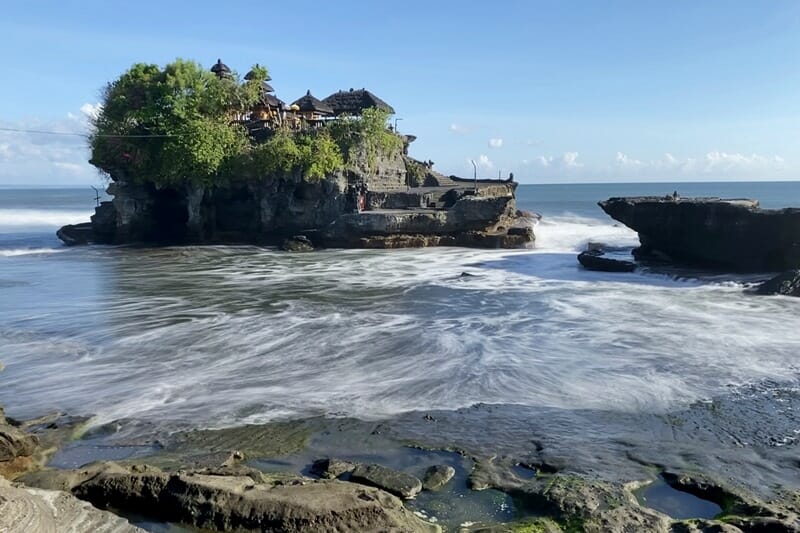
What does this mean for you? Be on the lookout for special events, deals and promotions in destinations that have been chosen to be in the limelight in the coming year.
For Vietnam, Dien Bien province in the north will be highlighted and 2024 is officially “Visit Vietnam Year – Dien Bien 2024” with a slew of events, festivals and programs on offer. Travelers can look across mountain gaps at the picturesque Pha Din Pass, visit lush nature reserves and soak in the U Va Hot Springs.

The historical city of Melaka and nature wonderland of Perak in Malaysia are both in the spotlight in 2024, and the government is offering special discounts for a variety of tourism products throughout the 2024 Visit Melaka Year and Visit Perak Year 2024.
With the opening of the new international airport, Siem Reap in Cambodia is expected to attract an increasing number of travelers following the government’s announcement of the “Visit Siem Reap Year 2024” campaign.
9. The currency exchange rate will be very favorable

Southeast Asia has always been a place where you can stretch your budget and get bang for your buck. My personal observation is that many Southeast Asian countries have experienced currency devaluation and inflation between 2019 and 2023. There is data to show that the Malaysian Ringgit, Thai Baht and Vietnamese Dong have weakened the most against the US Dollar.

For example, 1 US Dollar used to get you 8,000 Lao Kip, and now it is closer to 21,000 Kip – while prices have also gone up somewhat proportionally, in general, your tourism dollars will go a long way in Southeast Asia. As a quick example, entry into the blue lagoons in Vang Vieng used to cost 10,000 Kip which was just over US$1 – today, most of the lagoons have “upped” their entry to 20,000 Kip, just under US$1.

What does this mean for you? It is increasingly important to be mindful of travel privilege, especially in a region that is rebuilding its tourism industry. As before, please do consider whether there is a need to haggle over what may amount to a few dollars with tour operators, drivers, shopkeepers and others in the hospitality field.
10. The commitment to sustainability perseveres

The theme of the 2024 ASEAN Tourism Forum was “Quality and Responsible Tourism – Sustaining ASEAN Future”, with two days of the tourism conference dedicated to discussing all things sustainable.

Speakers from the likes of Destination Mekong, the Adventure Travel Trade Association, Inthira Group, Wildlife Conservation Society and Mekong Institute gathered for panel discussions covering a range of hot topics including navigating sustainability certifications, how to market sustainability, community-based tourism and unique sustainable tourism initiatives in Southeast Asia.
In the tourism briefings, the vast majority of government tourism organizations highlighted their ongoing commitment to sustainability and ensuring that their destinations are creating a foundation for better travel.

Thailand, for example, developed their “Sustainable Tourism Goals” in alignment with the United Nations’ Sustainable Development Goals; in turn, tourism providers are certified through a Sustainable Tourism Acceleration Rating (STAR) system. It aims to encourage 80% of the tourism industry to get certified by 2025.
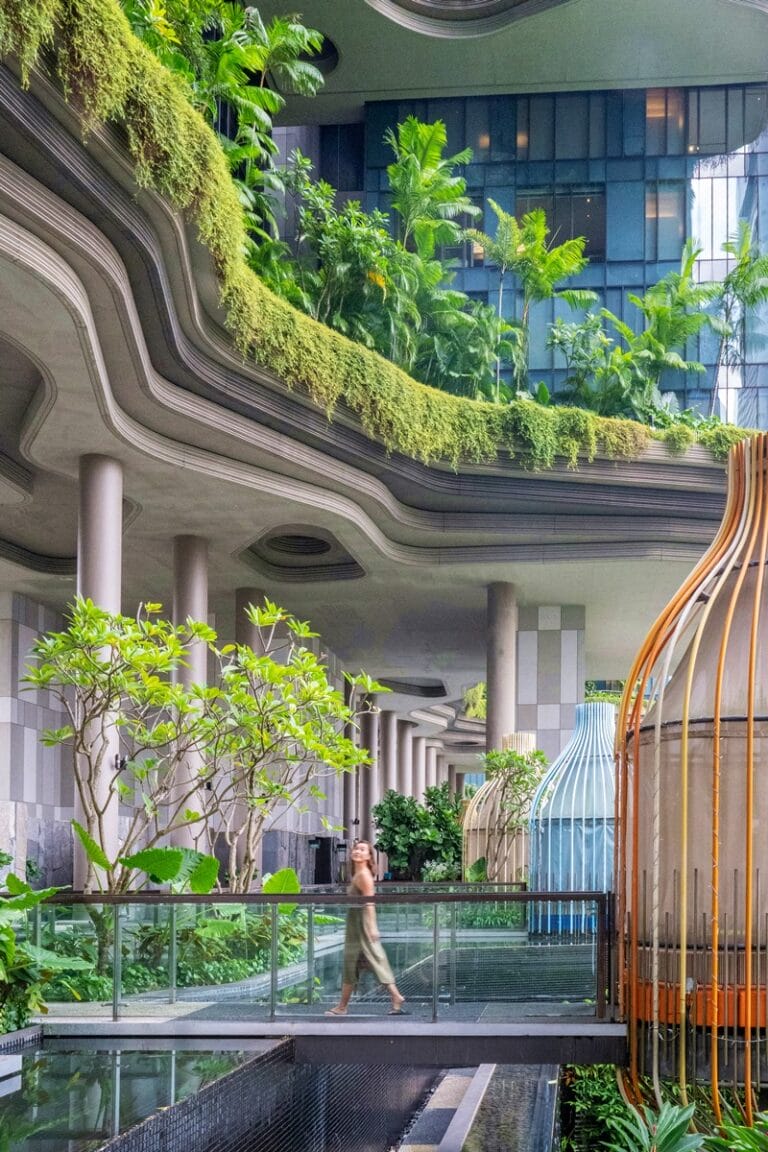
Singapore is home to some of the world’s greenest properties like the PARKROYAL COLLECTION Pickering, but continues in its steadfastness to creating a more sustainable tourism sector.
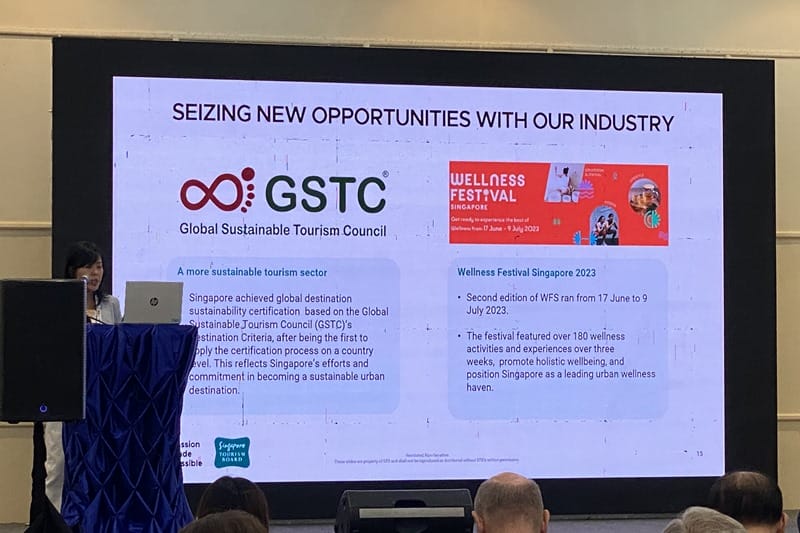
It achieved global destination sustainability certification (the first to apply on a country level) based on the Global Sustainable Tourism Council’s Destination Criteria which measures criteria such as whether destinations have dedicated committees or groups responsible for a coordinated approach to sustainability tourism and whether it implements a system to monitor and respond to socio-economic, cultural and environmental issues and impacts arising from tourism.

In addition to the new tourism levy in Bali which is earmarked for projects such as waste management and cultural preservation, Indonesia is placing an emphasis on what it calls “priority destinations” and the implementation of Sustainable and Regenerative tourism. In Morotai, work is undergoing to preserve the marine ecosystem; training for tourism communities and coral reef conservation is being completed in Likupang; renewable energy is being promoted at Danau Toba lake; and ecosystem restoration and mangrove planting continues in Labuan Bajo.

With all that said, there is still a need to keep the momentum and to ensure that “sustainability” is not just a catch-all buzzword that gets thrown around. According to the latest Action Roadmap for Sustainable Tourism Development published by ASEAN in early 2024, “the pandemic has…presented a reset moment for destinations, allowing them to reassess and rethink their tourism strategies, with a renewed focus on sustainability and responsible tourism to address long-standing issues and prepare for a more balanced and resilient future in the post-pandemic era.” Read pages 12-16 and 55-65 of the Roadmap for more insight into what each specific ASEAN member nation is doing in terms of sustainable tourism policies.

The key priorities are also outlined in this roadmap, including sustainable economic growth, ensuring social inclusiveness to benefit local communities, resource efficiency and environmental sustainability and cultural diversity and heritage protection.
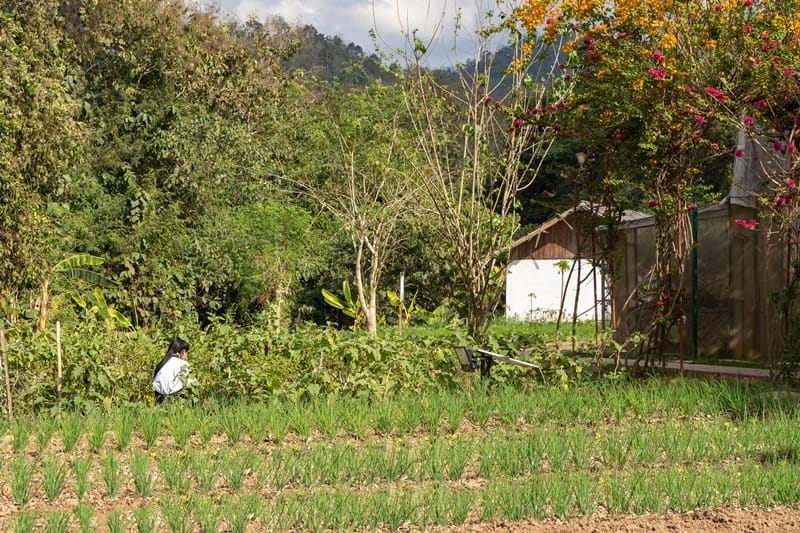
What does this mean for you? As a consumer, we need to share the burden of ensuring that tourism standards are raised, it’s no longer enough to simply scrap the plastic bottles and straws and call it a day.

It’s time to act responsibly, ask questions and choose hotels, tour companies and destinations that create positive impact for the communities they operate in.

I hope this big-picture guide to updates in Southeast Asia helped to reveal more about the region, and that it inspires you to explore more of this part of the world.
Pin this for later!



I was hosted by Tourism Laos and ASEAN to participate in the ASEAN Tourism Forum in Vientiane. However, no compensation was received for this article, and as always, the opinions on Yogawinetravel.com are (and always will be) my own!
This article contains affiliate links. If you choose to book using these links, I will earn a small commission at no extra cost to you. Thank you for supporting my website by using these links!
Enjoyed reading this article? Subscribe to the mailing list!
* Unsubscribe at any time. Your e-mail address will only ever be used to send the occasional Yoga, Wine & Travel newsletter.

